HEVC Versus H.264 Playback Performance
For devices that can decode HEVC video, performance is a concern. As HEVC compresses video streams to a greater extent than H.264, it requires more processing power to decompress; a pretty typical trade off when it comes to compression algorithms.
The difference in hardware utilization is particularly significant when comparing HEVC software playback to H.264 hardware-accelerated playback. This is a situation that will be common to most current-generation devices, as H.264 hardware decoding is very common, whereas we're only starting to see HEVC hardware decoders on the market.
For mobile devices, HEVC's greater hit on performance naturally leads to a greater hit on battery life. Again, this is a trade-off that users, at least for the next few years, will have to consider when encoding or playing HEVC content. The standard may allow you to view 4K streams while consuming less bandwidth, but your handset may run out of juice earlier than expected.
To see just how HEVC and H.264 differ from a performance perspective during playback, I ran some benchmarks on a collection of reasonably recent hardware.
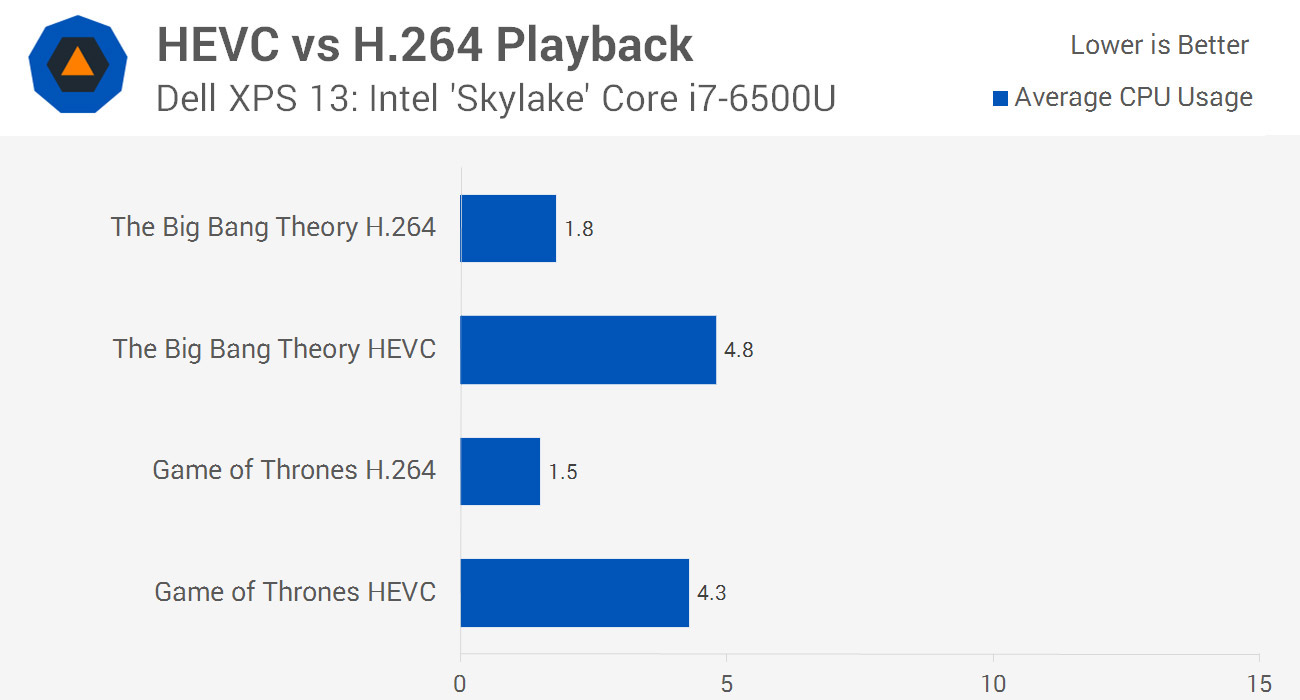
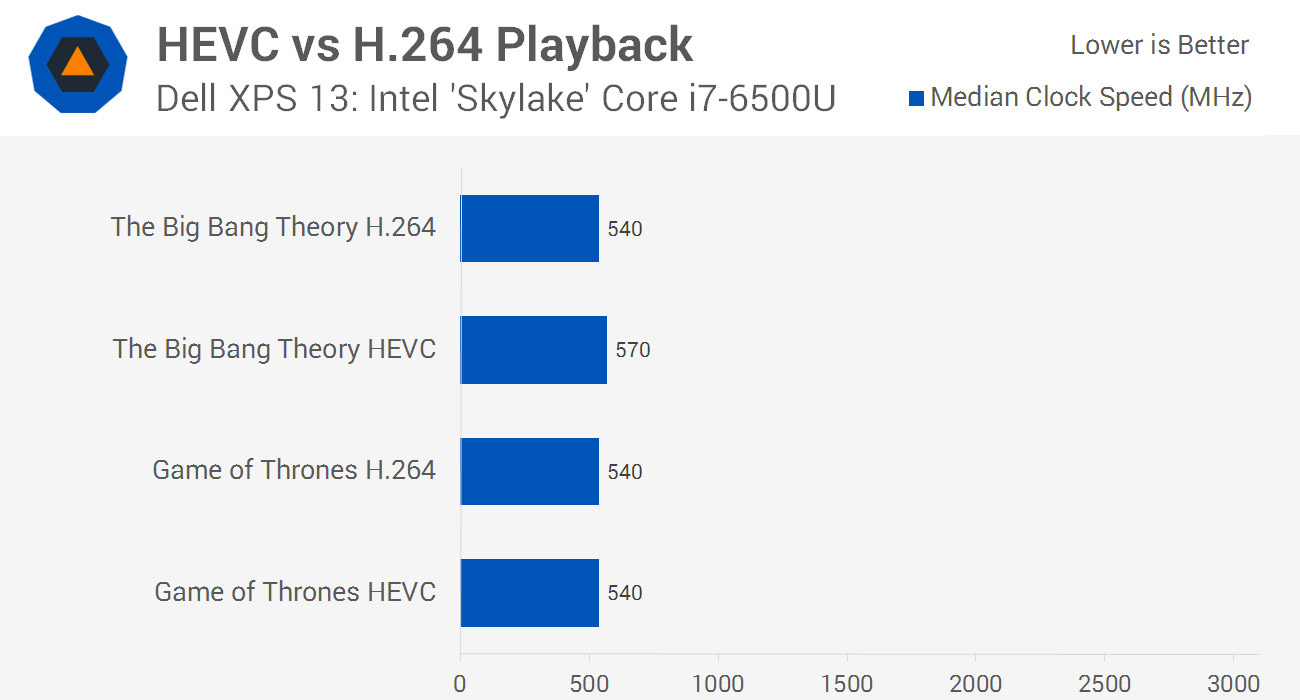
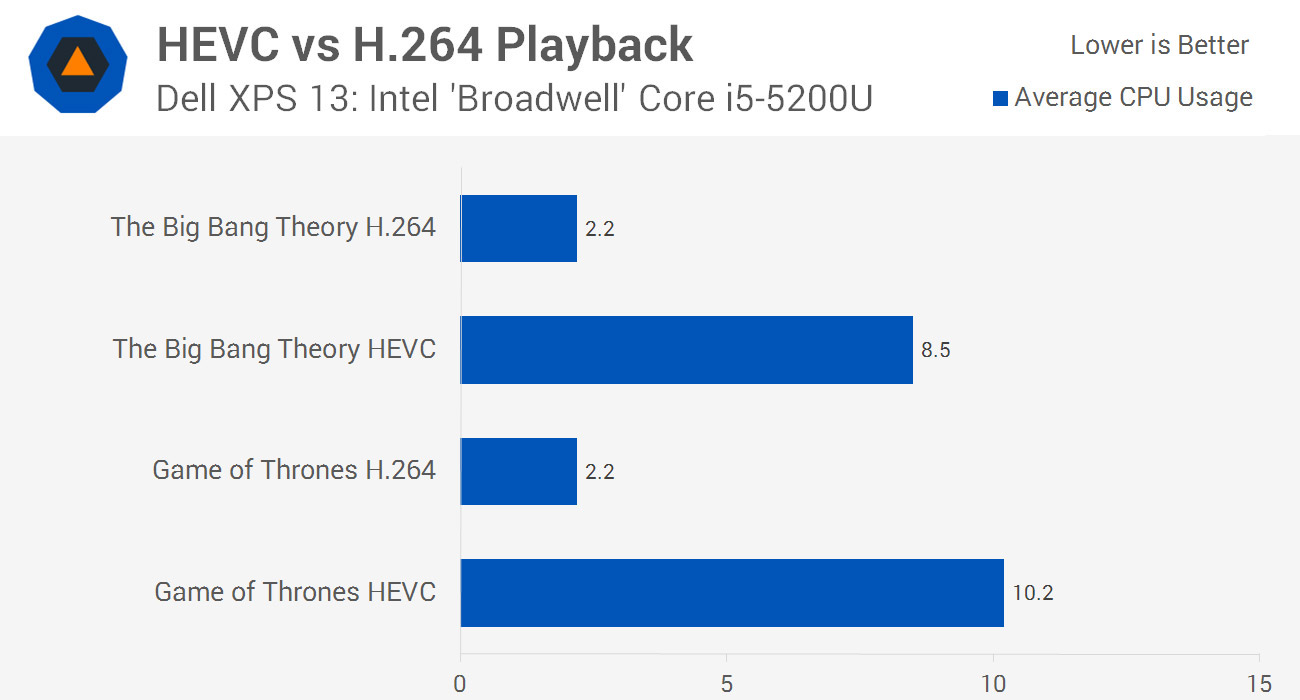
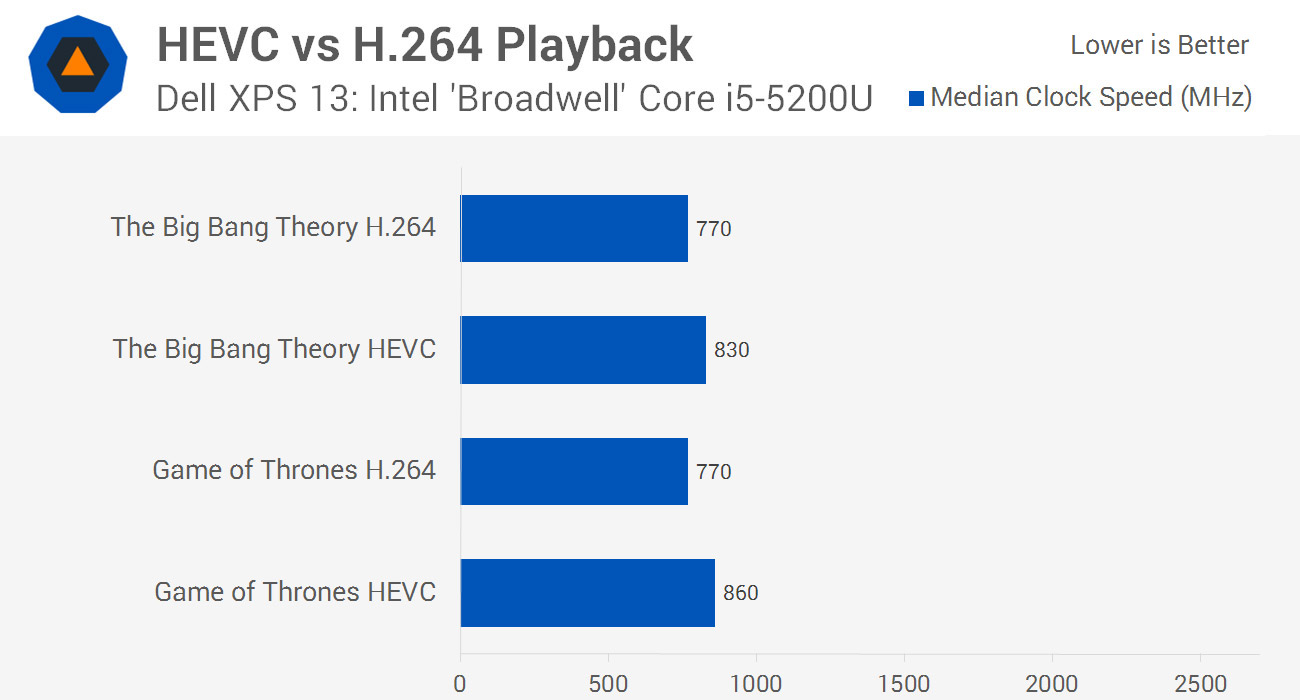
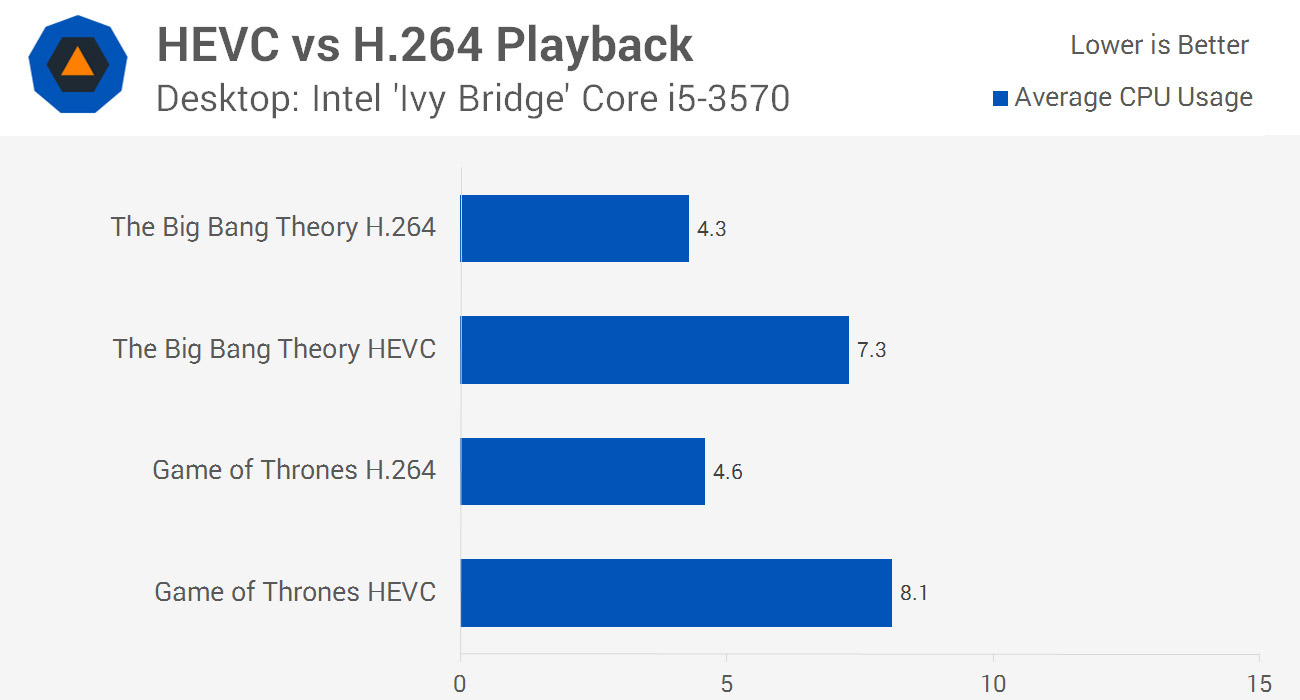
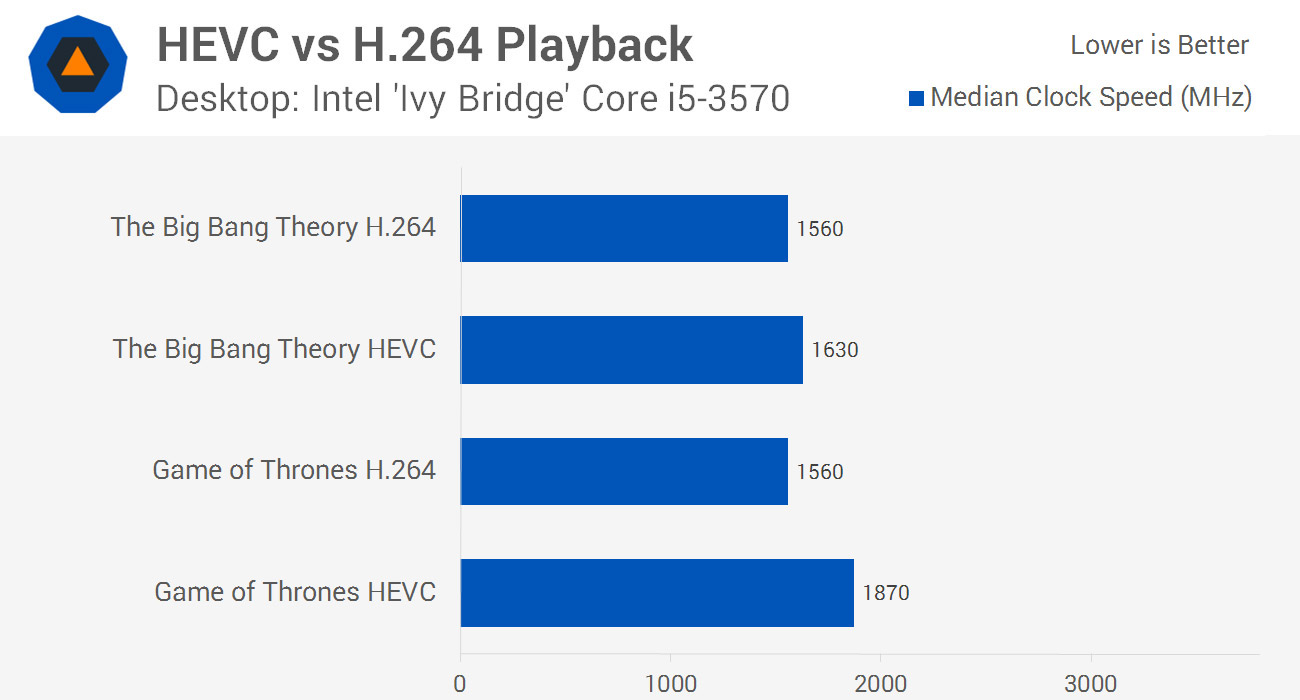
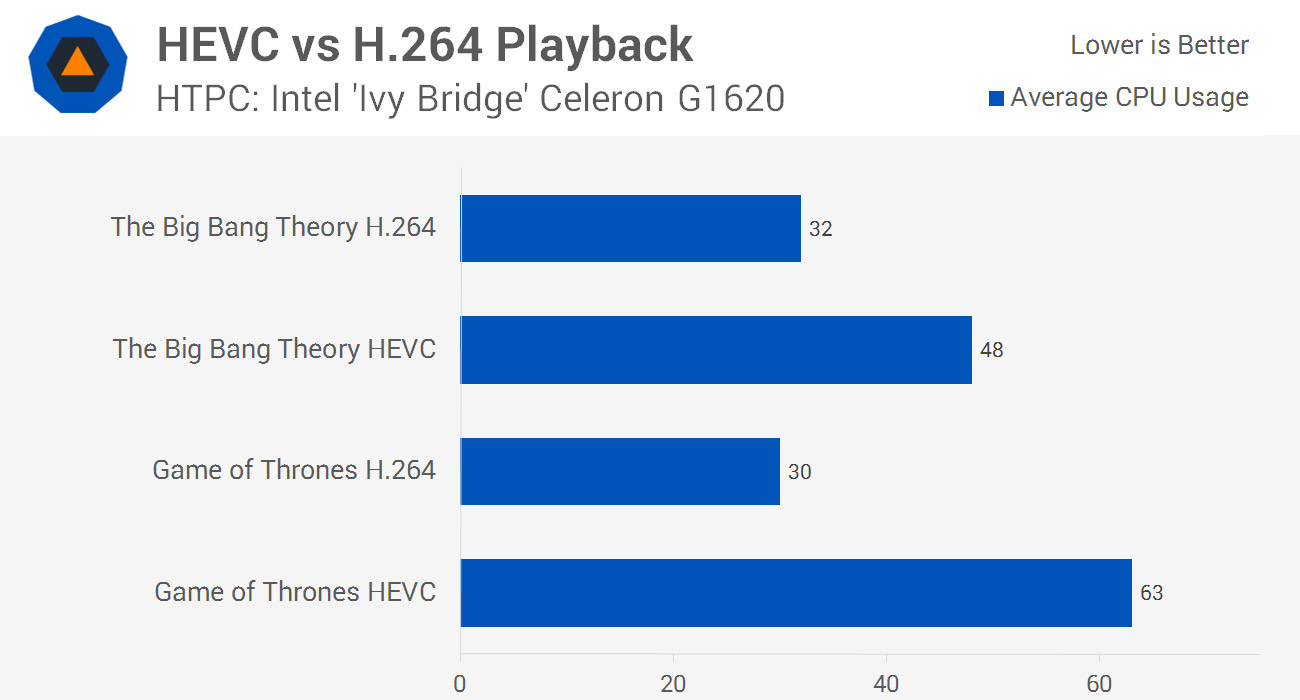
Across the four PCs I tested both the HEVC and H.264 files on, typically there was only a small performance hit when playing back the HEVC files. On an Ivy Bridge Intel Core i5-3570 desktop, CPU utilization roughly doubled, but sat under 10 percent when playing back HEVC files. There was a wider gap in utilization on our Broadwell-based Dell XPS 13, although again utilization sat below 10 percent in both cases, with very impressive results while decoding H.264.
The Skylake Dell XPS 13 is the only device tested here that has support for hardware HEVC decoding. Unsurprisingly, this resulted in very low CPU utilization while decoding HEVC, and even though utilization was noticeably higher than decoding H.264, it was still low enough to not be of concern.
On a low-performance HTPC, built using an Intel 'Ivy Bridge' Celeron G1820, decoding HEVC wasn't particularly troublesome either, despite CPU utilization sitting in the 45 to 65 percent range. Even though this may sound quite high, I never experienced any stuttering or decoding issues on this system.
I also recorded the median clock speeds that each processor sat at while decoding both H.264 and HEVC. In most circumstances, there was only a small 100-200 MHz jump in clock speed while decoding HEVC, which helps with power consumption. Across the board, as CPU utilization was below 100%, the CPU never ran at its full clock speed while decoding these files, which is a great result.
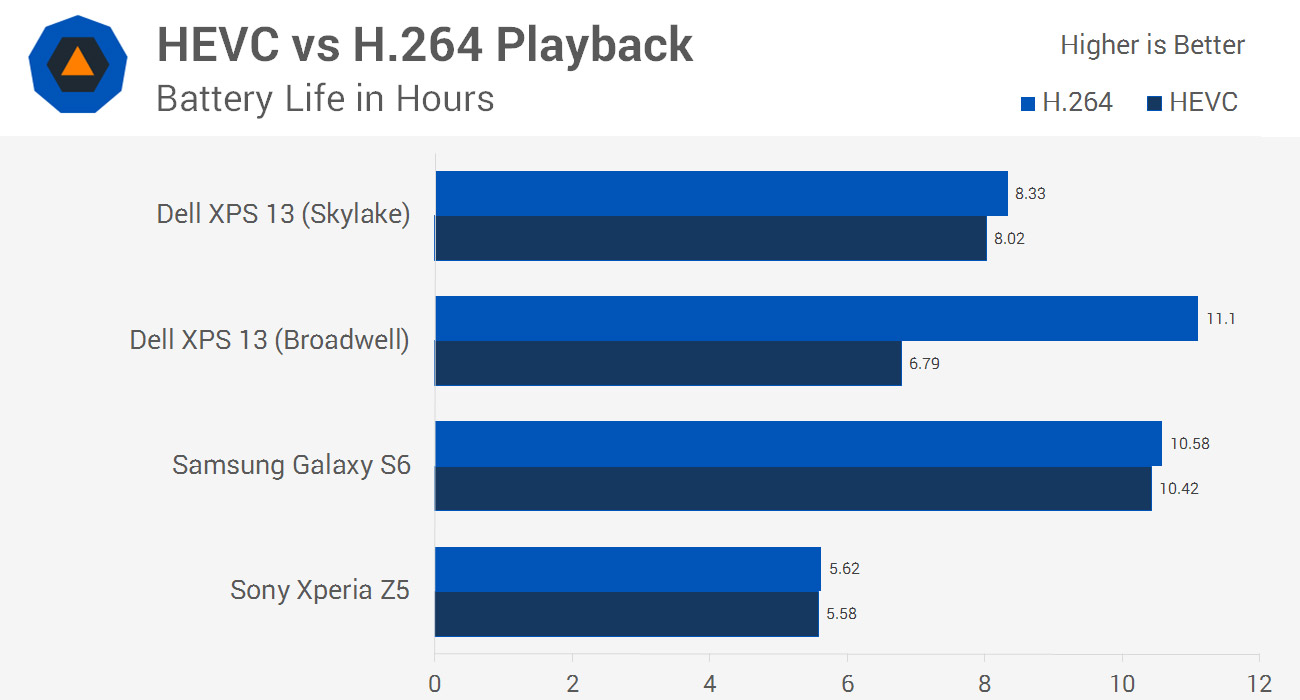
To start our battery life results, I've recorded figures from two smartphones that support hardware HEVC decoding: the Snapdragon 810-powered Sony Xperia Z5, and the Exynos 7420-powered Samsung Galaxy S6. While playing back the same Game of Thrones video on both handsets, encoded in either H.264 or HEVC, there was essentially no difference in battery life. This is a fantastic result, as it makes it much easier to justify encoding files in a space-saving HEVC format.
On a laptop without HEVC hardware decoding, the Dell XPS 13 with Broadwell inside, we saw a reduction in battery life of four hours. This is a pretty significant drop, and highlights the importance of having hardware decoding support in your battery powered devices. When moving up to a newer XPS 13 with Skylake inside, the inclusion of hardware decoding again reduces the battery life gap to zero.
